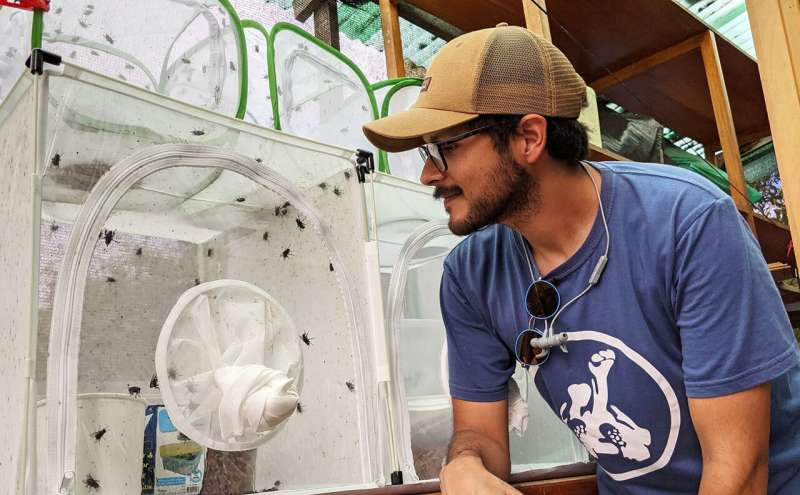This article has been reviewed according to Science X's editorial process and policies. Editors have highlighted the following attributes while ensuring the content's credibility:
fact-checked
proofread
Study highlights urgency of parasitic wasp release to save native bird

Researchers with the University of Minnesota hope to release highly specialized parasitic wasps to serve as a biological control method to save Darwin's finches from a dire threat: the invasive avian vampire fly, Philornis downsi.
This species has been devastating finch populations on the Galapagos Islands by laying eggs in their nests, with the emerging larvae harming the nestlings.
To protect these iconic birds and other endemic species impacted by the fly, the research team investigated the potential of using a parasitic wasp, C. annulifera, to target the vampire fly without affecting other native endemic species. The results of this three-year study are promising and suggest a careful release of the wasp that could protect the finches without harming the delicate ecosystem of the Galapagos.
The work appears in Insect Conservation and Diversity.
Surprisingly, the study also found only two native fly species on the islands, highlighting an urgent need to protect these native species.
"The data suggest that the introduced flies are displacing the native and endemic flies," said George Heimpel, the study's principal investigator and Distinguished McKnight University Professor at the University of Minnesota.
This discovery adds a layer of complexity to the mission, emphasizing the importance of ensuring the wasp's release does not negatively impact native fly populations that might still exist, albeit in rare instances.
"The findings underscore the urgency and the delicate balance of introducing a new species to control an invasive one, ensuring we protect native species," Heimpel said.
More information: Ismael E. Ramirez et al, Competition among invasive and endemic carrion fly species in the Galapagos Islands with implications for biological control risk assessment, Insect Conservation and Diversity (2023). DOI: 10.1111/icad.12706
Provided by Morris Animal Foundation



















